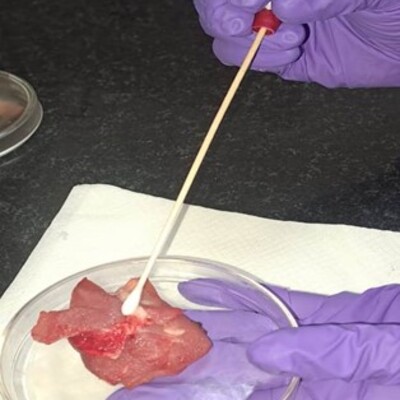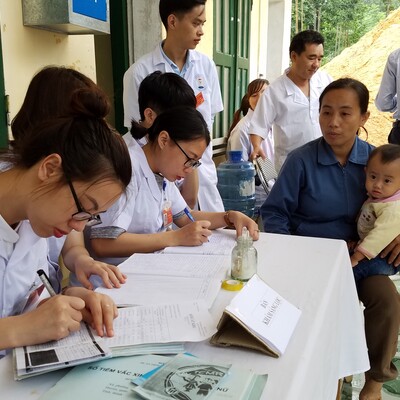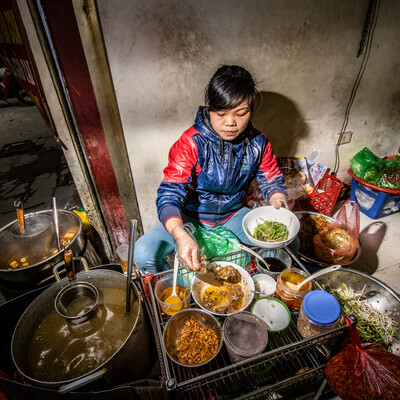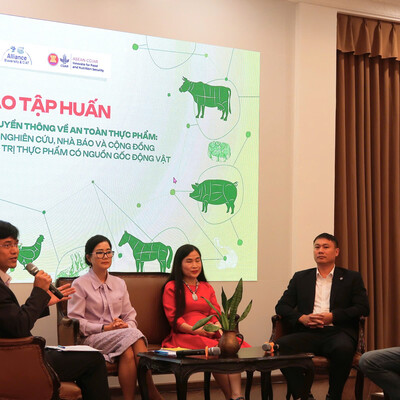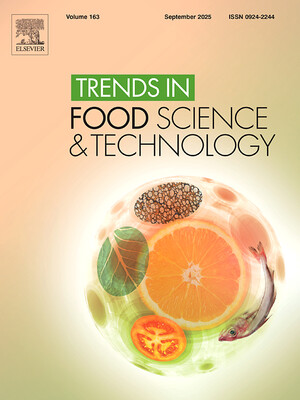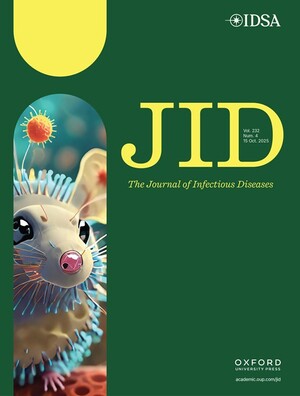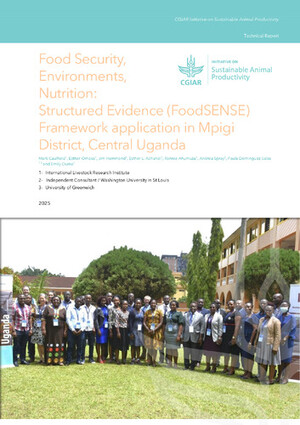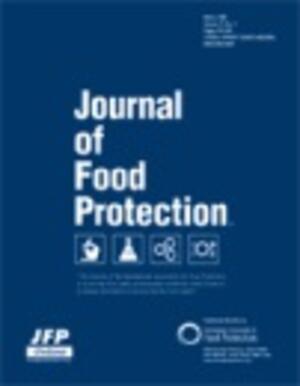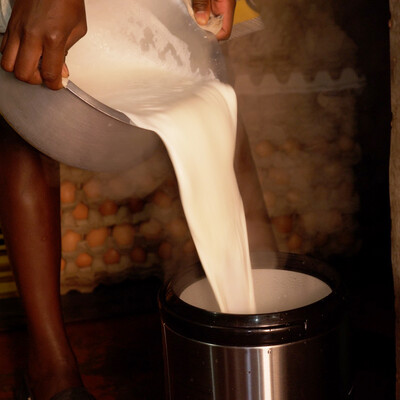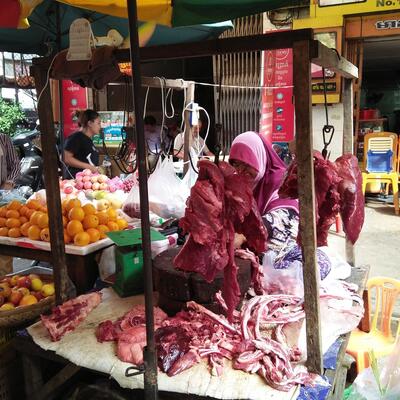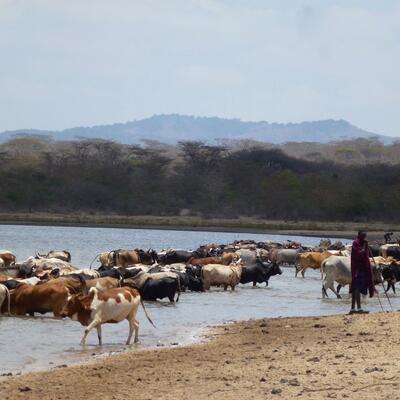
ILRI and partners launch One Health initiative to improve food safety in India
ILRI and partners launch One Health initiative to improve food safety in India
14 June 2023, Uttar Pradesh, India - The CGIAR Initiative on One Health was launched by the International Livestock Research Institute (ILRI), in collaboration with the International Food Policy Research Institute (IFPRI), International Water Management Institute (IWMI), World Fish and other partners. With the aim of ‘Protecting human health through a One Health approach’, the initiative is being implemented in seven countries across Asia and Africa (India, Vietnam, Bangladesh, Kenya, Ethiopia, Uganda and Côte d’Ivoire). Its goal is to improve food safety and reduce the burden of zoonosis and antimicrobial resistance in different livestock product value chains.
India was selected as one of the target countries because of its role as a major livestock producer as well as its predominantly informal livestock product market, which has a bearing on food safety. ILRI has partnered with the Indian Council of Agricultural Research–Indian Veterinary Research Institute (ICAR–IVRI) to implement the initiative at Bareilly in Uttar Pradesh.
The focus of the initiative in India is to improve food safety (Work Package 2) in the chicken value chain by assessing human health risks and demonstrating certain health reduction practices for evidence generation and scaling out. ILRI’s CGIAR partner, IWMI, may also work on water quality (Work Package 4 of the initiative) in the same site.

Ram Pratim Deka (scientist, ILRI) addressing the participants at the launch of the CGIAR One Health Initiative in India (photo credit: ILRI/Ram Pratim Deka).
Held at ICAR–IVRI, the launch-cum-stakeholder consultation was attended by several representatives from government departments and partner institutions. It was officiated by Kiran N Bhilegaonkar, head of veterinary public health at IVRI, Bareilly. The opening session was followed by the stakeholders’ consultation facilitated by Ram Pratim Deka, a scientist at ILRI.
At the beginning of the discussion, Ruchin Agarwal, a paediatrician in Bareilly informed the gathering that many children seen in the outpatient department suffered from diarrhoea, hepatitis, typhoid, septicemia or vector-borne diseases and many of these were linked to poor-quality food and water or faulty feeding practices. He said that if the food could be produced, handled and fed to the children in a hygienic manner, the incidence of these diseases would reduce significantly.
‘The importance of food-borne and zoonotic diseases like brucellosis and tuberculosis is not taught adequately in medical courses so these illnesses are not screened sufficiently in hospitals. There is a need to sensitize human health professionals on zoonotic diseases,’ Agarwal added.
Similarly, Izatnagar senior medical officer, Anupam Goyel, stressed the importance of human and veterinary health professionals working together to reduce the risk of foodborne and zoonotic diseases. Huma Khan, from the Department of Community Medicine at Shri Ram Murti Smarak Institute of Medical Sciences, Bareilly, stated that human health could be protected by managing the disease-causing agents at the source before they infected human beings, thus saving time and money.
Abdul Subhan, a goat slaughterer and meat seller in Bareilly briefed the attendees on how slaughtering, retailing, storing, discarding and disposing of small ruminants is done in the area. He reassured them that diseased goats and sheep were neither sold nor slaughtered. In response to Subhan’s concern on the challenge of slaughter waste disposal, Sanchit Sharma, deputy city health officer of Nagar Nigam, Bareilly, mentioned that a plan was underway to remedy this.
One of the key debates during the forum was on the most important livestock product value chain in Bareilly. A section of the participants, led by Lalit Kumar Verma from the district’s Department of Animal Husbandry, were of the opinion that milk is the most crucial animal-source food in the area.
‘Uttar Pradesh has a large vegetarian population and milk plays an important role in the human diet. But there are frequent reports of adulteration with water and other substances, therefore milk should be selected as a priority value chain for the ILRI-IVRI collaborative project on One Health,’ Verma said.
However, another section of participants opined that the chicken value chain has increasingly become important and popular in Bareilly as a source of animal protein, possibly because chicken is cheaper than mutton and chevon. However, chicken may also pose a health hazard because of the prevailing poor infrastructure and practices for slaughter and retail.
Finally, the participants unanimously agreed that the chicken value chain should be prioritized for study over the milk value chain because of its high potential to demonstrate good practices in Uttar Pradesh and beyond. All stakeholders expressed their willingness to fully support the successful implementation of the planned activities under the One Health initiative. They also committed to providing all possible data and information required of them.
Finally, in response to a proposal from ILRI’s Ram Pratim Deka to constitute a joint coordination committee under the One Health approach for information sharing and taking collective action for improving food safety, all agreed in principle to be part of the initiative. The stakeholders’ meeting concluded with a consensus view to increase coordination among all relevant government and non-government agencies and to meet at periodic intervals to design plans and programs to ensure chicken meat safety. The participants supported the idea of piloting the most suitable model in Bareilly and scaling this up to larger areas through policy facilitation.

Group photo taken during the launch-cum-stakeholders’ consultation meeting (photo credit: ILRI/Ram Pratim Deka).
Learn more about the CGIAR Initiative on One Health.
https://www.cgiar.org/initiative/one-health/
https://www.ilri.org/news/ilri-and-icar-ivri-discuss-implementation-one-health-initiative-india
(The post was edited by Terry Mwenda, communications officer, publishing and editing, ILRI, and Paul Karaimu, communications officer, ILRI)






